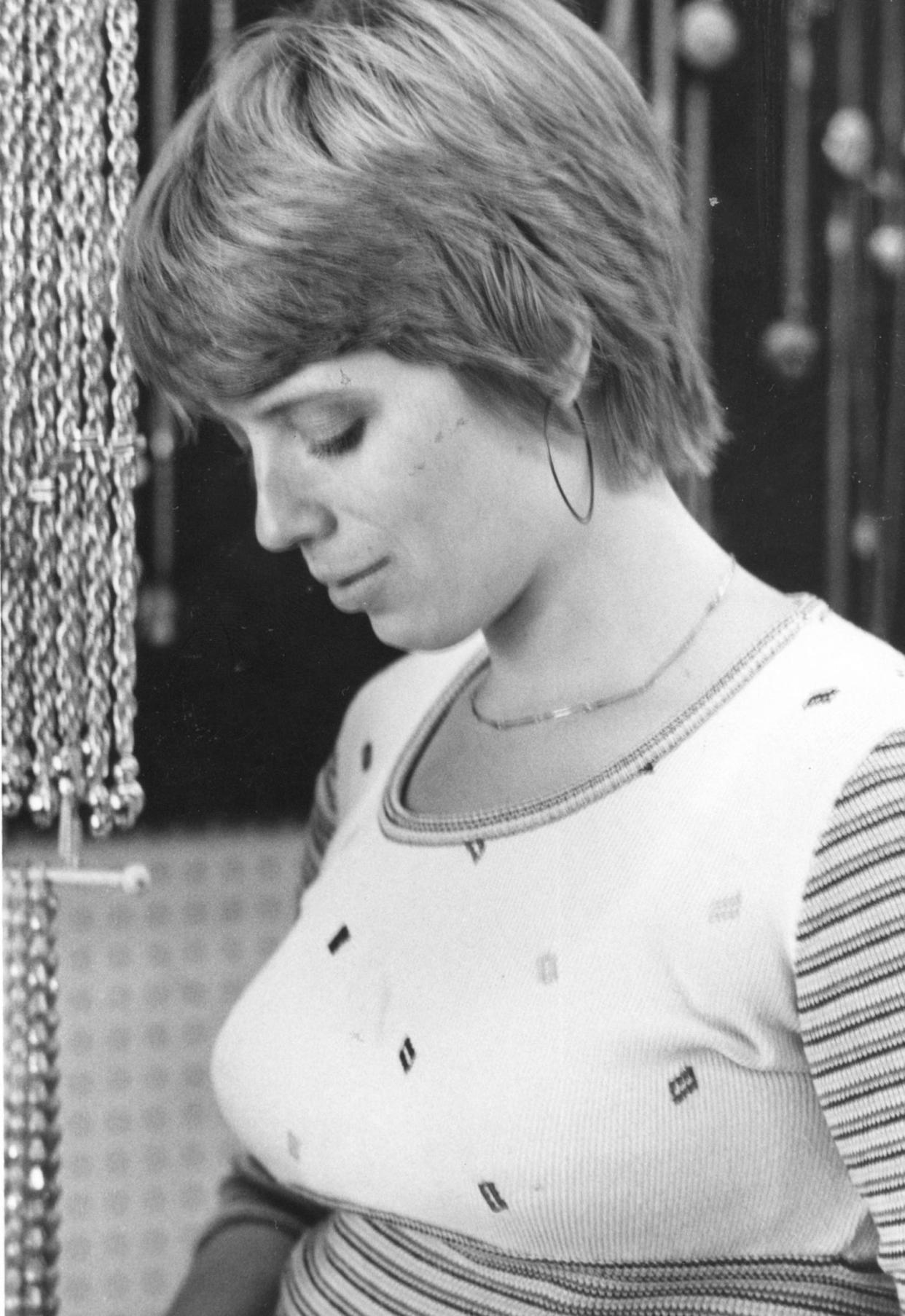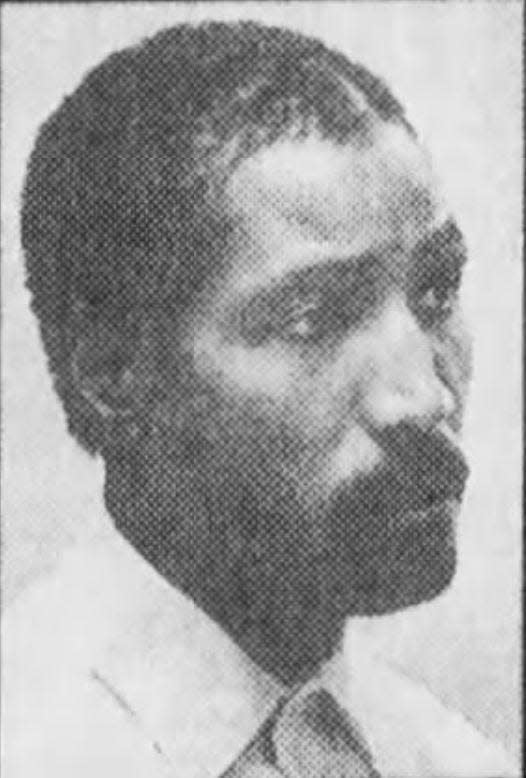Man sentenced to death for NKY rape, murder almost 40 years ago to get chance at parole

- Oops!Something went wrong.Please try again later.
A man sentenced to death in 1988 for the rape and murder of a Northern Kentucky woman, but later spared by an order from former Kentucky Republican Gov. Matt Bevin, will have a chance at parole this month.
Now 67 years old, Gregory Wilson will go before the Kentucky Parole Board on Jan. 23, officials confirmed Thursday.
Wilson and his co-defendant, Brenda Humphrey, were convicted of abducting Deborah Pooley in May 1987 from a parking lot near her home in Covington, according to Enquirer reporting from the trial.
Jurors found that Wilson raped and strangled Pooley to death while Humphrey drove to Indiana.
The 36-year-old restaurant manager’s decomposed remains were found two weeks later in a field roughly 20 miles west of Indianapolis. She had been robbed and left without clothing.
Wilson was found guilty of abduction, rape, robbery and murder and sentenced to death. Humphrey was convicted of kidnapping and facilitation to rape and murder and has since been released on parole after serving a sentence of 25 years to life.
Wilson appealed his convictions and death sentence but remained on death row until Bevin commuted his sentence in December 2019 to life with the possibility of parole after 30 years.
“To say that his legal defense was inadequate would be the understatement of the year,” Bevin wrote in his commutation order. “The prosecution and defense in this case were, from start to finish, incredibly incompetent.”
Wilson’s trial has long been a source of intrigue, not only because of the nature of the offense, but due to his attorneys’ ineptitude and a scandal that wouldn’t be uncovered until years later.
Several lawyers had been assigned to Wilson’s case but for various reasons, had dropped out.

When no local attorneys offered to represent Wilson for the then-maximum state fee of $2,500, a Kenton County Circuit Court judge posted a notice outside his courtroom in a desperate plea for volunteers.
Two lawyers came forward, but one had never tried a felony before and the other, William Hagedorn, who offered to serve as lead counsel for free, had no office, no law books and used the phone number of a local tavern on his business card.
Hagedorn wandered in and out of the courtroom, cross-examined virtually no witnesses and presented no evidence to support a lesser penalty than death.
Claiming Hagedorn and his co-counsel, John Foote, were incompetent, Wilson represented himself during parts of the trial. He gave his own opening statement, saying only, “I am not a lawyer, and I’m not guilty,” according to trial transcripts.
His closing argument was so short it took less than two pages to transcribe, whereas the prosecutor’s argument took 54.
During the sentencing phase of his trial, Wilson did not present any character witnesses, nor did he point out any mitigating circumstances to the jury.
“Thus, the defense in this case began with a handwritten note begging for volunteers, and ended with Wilson clumsily attempting to defend himself because he lacked competent counsel,” U.S. 6th Circuit Court Judge Boyce F. Martin Jr. wrote in a 2010 dissenting opinion.
“Over my more than thirty years on the bench, Wilson’s trial stands out as one of the worst examples that I have seen of the unfairness and abysmal lawyering that pervade capital trials,” Martin added.
In the years since his trial, Wilson’s lawyers have said that Humphrey’s sister told police that Humphrey admitted to killing Pooley. The sister was never called to the witness stand during Wilson's trial.
Former Kenton Commonwealth's Attorney Donald Buring, who prosecuted the case, has refuted that claim, saying it’s not supported by the evidence.
It was revealed years later through court papers that Humphrey, who testified against Wilson identifying him as the killer, was taken each day of the trial to the chambers of another judge, where they had sex.
That judge was reportedly a good friend of Judge Raymond Lape, who presided over Wilson’s trial.
In defending Wilson’s conviction and death sentence, the attorney general’s office has noted that state and federal courts have upheld both and said Wilson was not prejudiced by Humphrey having sex with another judge.
While Pooley’s parents have since died, her nieces told Enquirer media partner Fox19 they fear for their safety should Wilson be released from prison.
Wilson's conviction for Pooley's killing wasn't his first. He previously spent roughly 13 years in an Ohio prison for two rape convictions and was released just 10 months before Pooley’s death.
Wilson later pleaded guilty in 1992 to charges in a rape case involving two women in Butler County, court records show. He was indicted in that case shortly after being taken into custody by authorities in Northern Kentucky.
"Gregory Wilson is a convicted serial rapist and suspected of being a serial killer. Granting him parole would place women’s lives in danger," Kenton County Commonwealth's Attorney Rob Sanders said in a statement.
Officials have previously pointed to Wilson as a person of interest in a Newport woman's killing in 1987, though there's no indication he was ever charged.
"The fact that Wilson is even eligible for parole is a travesty of justice," Sanders said. "(If) the governor was inclined to commute his sentence, he should have commuted it to life without parole so the victim’s family doesn’t have to live through another nightmare."
The county's top prosecutor said he is supposed to meet with the parole board on Jan. 22.
The parole board has three options when deciding on Wilson's case, according to the state's website.
It can recommend Wilson be released on parole, set a specific number of months he must serve before further parole considerations, or decide he must serve out the remainder of his time in prison.
Louisville Courier-Journal staff writer Andrew Wolfson contributed to this report. Additional source: The Enquirer archive.
This article originally appeared on Cincinnati Enquirer: Man to get shot at parole nearly 40 years after NKY death sentence

